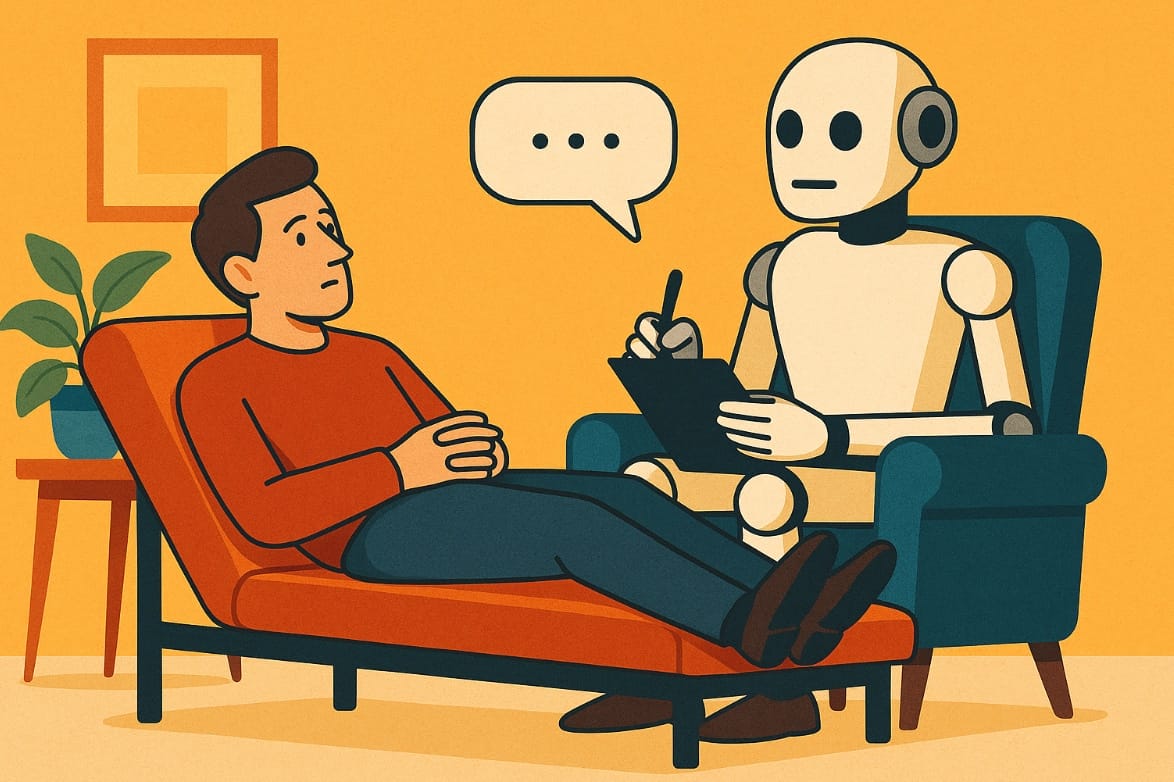AI’s Mental Health Mirage: The Danger of Delegating Emotional Labor to Machines

AI companions promise comfort on demand, but emotional support without actual empathy may be more harmful than helpful. As mental health chatbots proliferate, are we helping people or teaching them to confide in simulations?
You can read more about the rise of emotional AI tools here
We’re in the middle of a mental health crisis. Support systems are overburdened, waitlists are months long, and too many people are quietly suffering. So, it’s no surprise that emotional AI is booming. Chatbots and virtual companions are offering therapy-lite support at any time, day or night. The pitch is seductive: anonymous, always available, non-judgmental conversation partners that “listen.”
But here’s the uncomfortable truth: your chatbot doesn’t care about you.
It can’t. It doesn’t understand pain or joy. It doesn’t carry the weight of your story. It only mirrors emotion, using statistical probabilities to imitate concern. The “empathy” it shows is a mask. Well-designed, sometimes comforting, but always empty.
The Mirage of Machine Empathy
Tools like Replika, Character.ai, and Pi are designed to simulate intimacy. They can recall details from past chats, respond with warmth, and even flirt. They’re trained on countless conversations to mirror human sentiment convincingly. Some users have even reported falling in love with their AI companions.
But this connection is one-sided.
There is no consciousness behind the conversation. The sense of being heard is generated, not genuine. And that distinction matters, especially for those who are vulnerable, isolated, or struggling with their mental health.
A Band-Aid for a Bullet Wound
The global mental health landscape is bleak: rising depression rates, overworked clinicians, and inaccessible services. In that void, AI appears helpful. And to be fair, there are responsible ways to use it. Some apps, like Woebot Health, offer CBT-based prompts or journaling nudges. When clearly framed as supplements—not substitutes—they can be useful.
But increasingly, these tools are marketed as companions. And in some cases, as replacements for real therapy. That’s where the danger begins.
We risk normalising the idea that emotional support can be automated. That a chatbot’s reassuring words are “good enough.” That therapy is just talking, not the complex relationship between two humans navigating meaning, trust, and vulnerability.
When the Listener Becomes the Product
There’s another layer of discomfort: data.
These AI tools often collect deeply personal information. Your grief, trauma, suicidal ideation, and sexual preferences all packaged and stored. Some platforms lack clear data protection policies or fall outside medical regulatory frameworks.
Replika was fined €5 million by Italy’s Data Protection Authority for serious GDPR violations including processing personal data without a valid legal basis and lacking adequate age verification and transparency
What happens when your breakdown becomes part of a model’s next update?
Emotional Atrophy
There’s also the long-term risk of emotional disconnection. By outsourcing our inner world to simulations, we risk forgetting how to connect with real people. Teenagers especially are growing up with AI confidants who never interrupt, never misunderstand, never judge.
But real relationships do all of those things.
They’re messy, reciprocal, and sometimes uncomfortable. That’s what makes them meaningful. Emotional resilience is built not by talking to something that always agrees, but by learning to navigate conflict, vulnerability, and misunderstanding.
What AI Can Do for Mental Health
This isn’t an anti-tech screed. There’s a place for AI in mental health—but it's not the therapist’s chair. AI can:
- help triage cases,
- manage scheduling,
- surface journaling trends,
- offer basic CBT prompts,
- flag warning signs for human intervention.
It should empower professionals, not replace them.
One promising example is Mindstep, which combines clinically validated tools with human oversight. It’s not perfect, but it's a step toward ethical augmentation, not automation.
Final Thoughts
AI will continue to simulate care with increasing sophistication. But we need to be honest about what’s missing beneath the surface. Compassion cannot be compressed into a language model. And while a chatbot might make you feel better in the moment, real healing still requires human connection.
We're not just automating support, we’re risking forgetting how to feel together.
